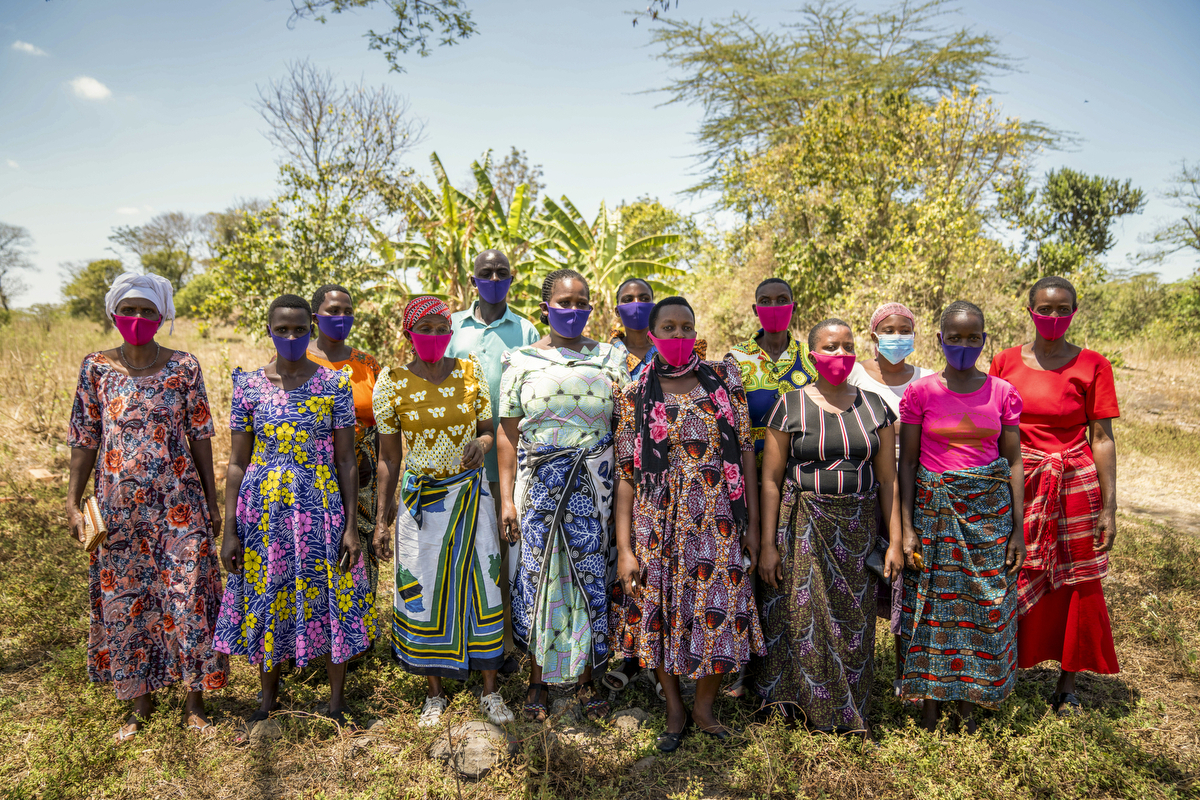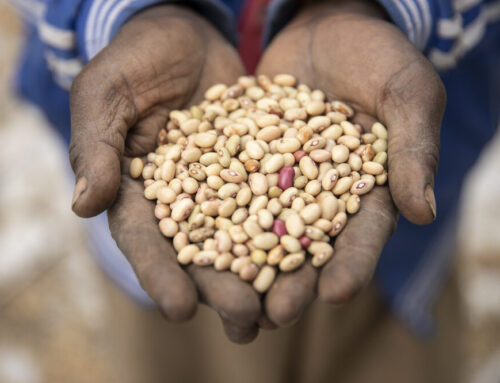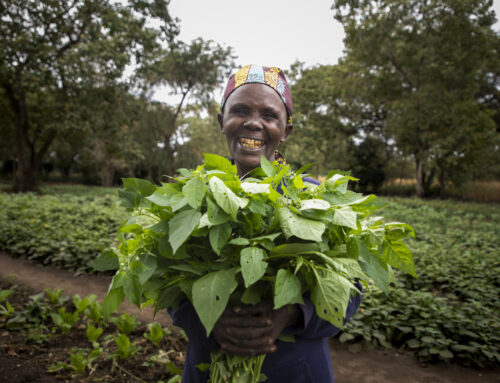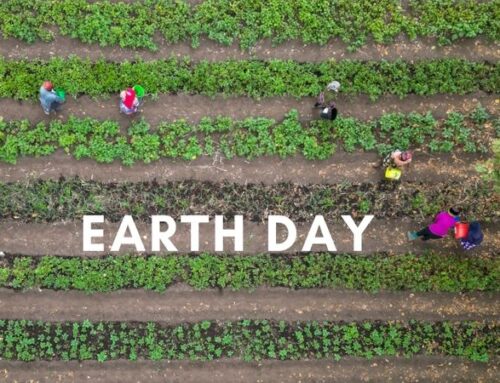Anna oversees the whole King’ori Ward, which lies between Mt Meru and Mt Kilimanjaro. Save the Rain works in ten villages in this area, constructing rainwater harvesting tanks. The masons – the women of the King’ori Group – move through the villages, choosing laborers from each village to assist them in each build.
Her team is comprised of 15 women, all of whom are gathered at her house today. They’re beautifully dressed. It’s rare to see them not in gumboots and overalls. The bright colors compliment the cacophony of laughter and chatter.
Supply chain challenges
They’ve been waiting on building materials. Supply chain difficulties – the story of the world lately. They’ve only built 37 tanks this year. They would typically be at number 60 or 70 by now. At the start of the pandemic, they stayed home for three months. The work has been intermittent since. It’s been hard.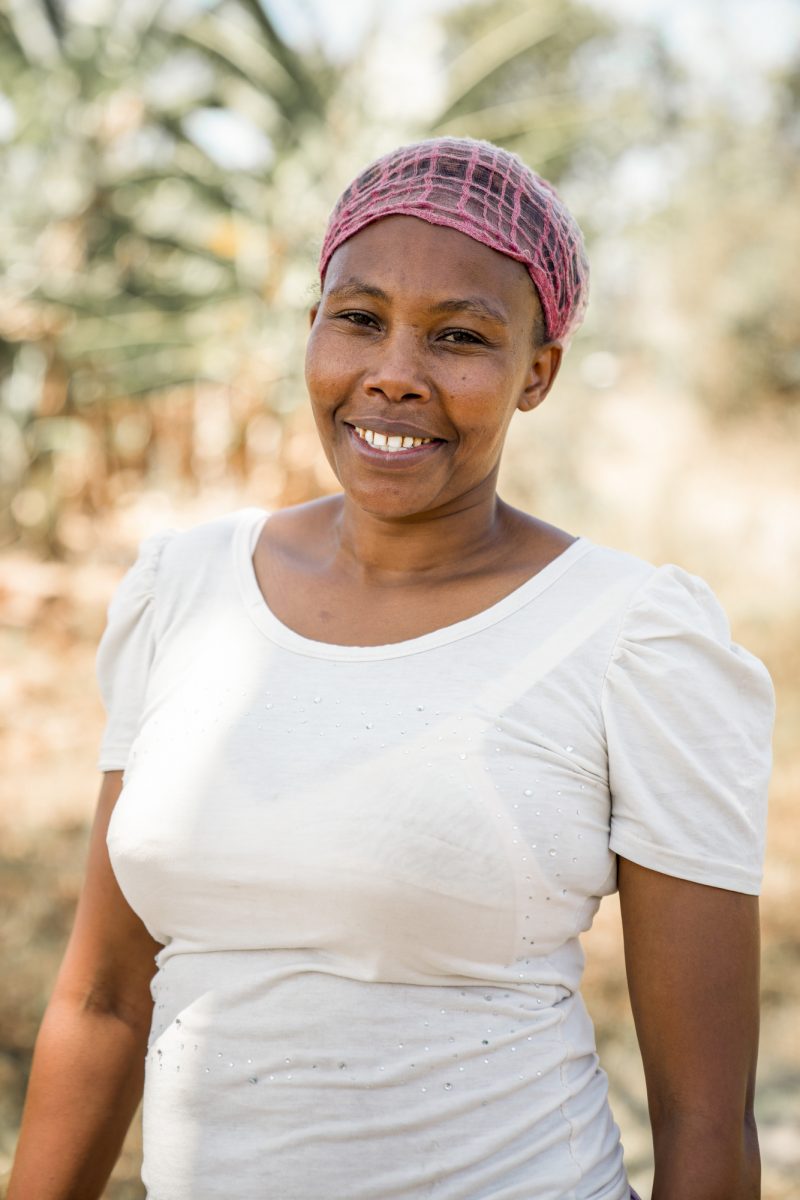
But not one of them got sick – their families neither. Anna attributes this to the protection and prevention measures Save the Rain taught them right at the start. At first, it felt counterintuitive. It went against their way of being– gathering, sharing and embracing. If a child doesn’t greet an elder, it’s a sign of disrespect. It took a while to get used to equating isolation, rather than togetherness, with safety.
Building a home
Anna’s daughter is 8. Appropriately, her name is Queen. She announced the other day that she plans to study in Uganda. Anna smiles when she hears Queen’s dreams, ones she never had. We don’t often use the term ‘single mother’ in an empowering context, but in Anna’s case, it’s clear she sees it that way. She refers to herself laughingly as a ‘bachelor.’
Anna built her parents a house on her land. She rears pigs, goats, cows and chickens. Anna plans to grow maize to sell. She recently received a Save the Rain greenhouse that supplies her family with vegetables.
Neighbors come for water, so she fills their buckets from her tank. In these lean times, it means a lot that she has the resources to manifest her generosity. Her home is a testament to the difference water can make — a place of thriving, a place of joy.
Others are not so lucky.
Many are trapped at home with alcoholic husbands, hungry children, feeling the brunt of confinement and uncertainty, hanging onto the hope of work. It makes you realize that it’s not just their financial dependence on the job, but some of these women need to escape their lives. When they’re together, says Anna, they leave their problems behind. Life is tough, but once they gather, anywhere becomes a place of peace.
There’s so much joy and ease watching them talk and laugh. “You see how much they’ve missed this,” Anna comments. This is the family they’ve built with sweat, labor and love. It’s perhaps the dearest thing they’ve had to sacrifice to this disease.
Anna shakes her head. Her greatest hope is that things return to normal, to get back to building tanks — for the sake of each of her women and the communities, they transform with their work.
You can support Anna and her team of masons by donating to the Women’s Water Initiative.
100% of public donations directly fund our projects
